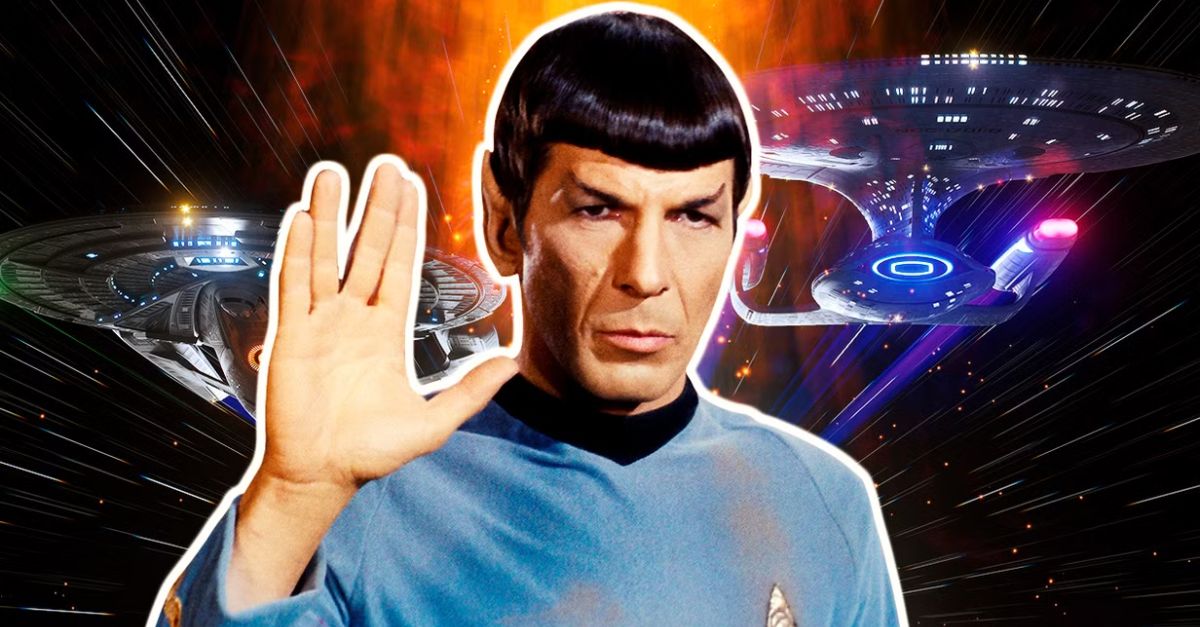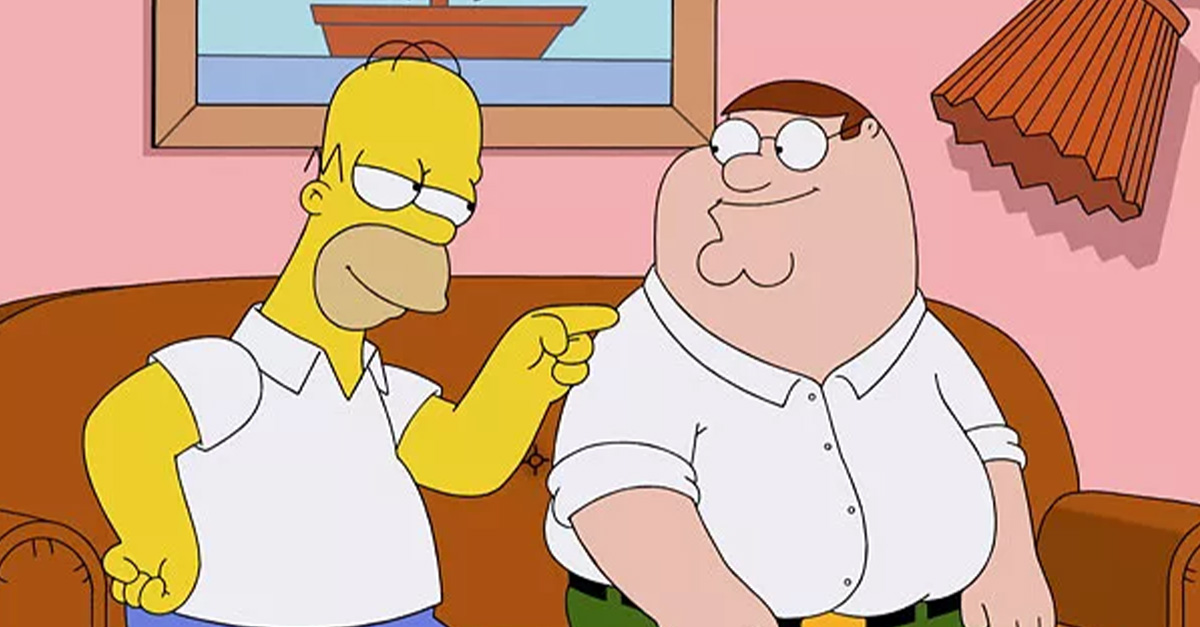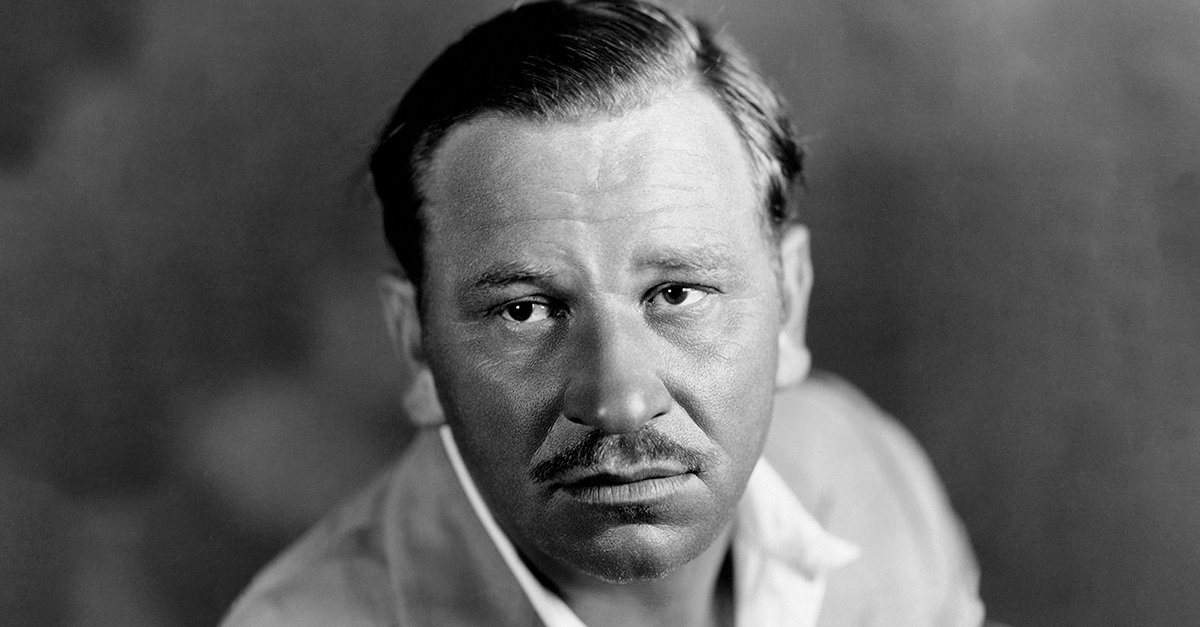They Said It Once, And It Stuck Forever
Star Trek: The Original Series is a treasure trove of unforgettable quotes that continue to echo through pop culture. These lines, delivered with gravitas and wit, encapsulate the show's enduring impact, resonating with fans across generations.

“I’m A Doctor, Not A Bricklayer!”
Ever had a boss ask you to handle something wildly outside your job description? That workplace frustration found its perfect pop-culture expression in Star Trek's Dr McCoy, whose exasperated line became television gold.
 Paramount Pictures, Star Trek (1966–present)
Paramount Pictures, Star Trek (1966–present)
“Insufficient Facts Always Invite Danger”
Through Spock's measured declaration in “Space Seed,” Star Trek crystallizes the essence of its half-Vulcan science officer. His role as the Enterprise's voice of reason transforms this cautionary principle from mere alien philosophy into a lasting touchstone for critical thinking.
 NBC Television, Wikimedia Commons
NBC Television, Wikimedia Commons
“Change Is The Essential Process Of All Existence”
In 1969, as America grappled with social upheaval, Star Trek beamed this gem of wisdom into living rooms nationwide. Spock's philosophical zinger in "Let That Be Your Last Battlefield" became the series's north star.
 Paramount Pictures, Star Trek (1966–present)
Paramount Pictures, Star Trek (1966–present)
“To Boldly Go Where No Man Has Gone Before”
While grammarians once fussed over its split infinitive, this line transcended mere linguistic debate to become Star Trek's defining mission statement. Opening every episode, this iconic phrase captured the series's spirit of exploration.
 Paramount Pictures, Star Trek (1966–present)
Paramount Pictures, Star Trek (1966–present)
“Fascinating”
Originally deployed by Spock with deadpan precision to signal genuine scientific wonder, the utterance "Fascinating" has boldly gone from earnest Vulcan observation to playful pop culture punchline.
 Paramount Pictures, Star Trek (1966–present)
Paramount Pictures, Star Trek (1966–present)
“I Canna Change The Laws Of Physics!”
The linguistic evolution of Scotty's famous protest reveals a curious transformation. This Scottish-inflected version, though technically misquoted, has become the preferred rallying cry among exasperated engineers and scientists.
 Paramount Pictures, Star Trek (1966–present)
Paramount Pictures, Star Trek (1966–present)
“I Am Endeavoring, Ma’am, To Construct A Mnemonic Memory Circuit Using Stone Knives And Bearskins”
Spock's legendary adaptability shines through his delightfully deadpan assessment of working with primitive Earth tools, delivered with quintessential Vulcan wit.
 Paramount Pictures, Star Trek (1966–present)
Paramount Pictures, Star Trek (1966–present)
“Without Freedom Of Choice, There Is No Creativity”
From The Return of the Archons, Kirk's declaration became a cornerstone of Star Trek philosophy. What began as a challenge to computer-controlled conformity became emblematic of the franchise's broader defense of individualism against enforced order.
 Paramount Pictures, Star Trek (1966–present)
Paramount Pictures, Star Trek (1966–present)
“Sometimes A Feeling Is All We Humans Have To Go On”
Aboard the Enterprise during A Taste of Armageddon, tension mounts as Kirk faces a critical decision without clear data. His response to Spock's logical protestations goes beyond their immediate conflict.
 Paramount Pictures, Star Trek (1966–present)
Paramount Pictures, Star Trek (1966–present)
“You May Find That Having Is Not So Pleasing A Thing As Wanting”
Delivered during Amok Time, the groundbreaking first episode to visit Vulcan, this line perfectly captures the logical yet profound Buddhist-like wisdom that made Spock's character uniquely compelling to generations of viewers.
 NBC Television, Wikimedia Commons
NBC Television, Wikimedia Commons
“I Object To Intellect Without Discipline; I Object To Power Without Constructive Purpose”
From social media moguls wielding algorithms to AI systems learning without guardrails, our modern world brims with unchecked power and unfettered intellect. How fitting, then, that Spock’s iconic challenge to Trelane in The Squire of Gothos (S1E17, 1967) still resonates today.
 Paramount Pictures, Star Trek (1966–present)
Paramount Pictures, Star Trek (1966–present)
“In Every Revolution, There’s One Man With A Vision”
The duality inherent in Mirror, Mirror (S2E04, 1967) finds perfect expression in this Kirk's assertion. This philosophical cornerstone reflects Star Trek's examination of how singular leaders can fracture or unify societies.
 Paramount Pictures, Star Trek (1966–present)
Paramount Pictures, Star Trek (1966–present)
“A Species That Enslaves Other Beings Is Hardly Superior”
When alien captors forced Kirk, Uhura, and Chekov into gladiatorial combat, Kirk's declaration was the show's revolutionary stance against oppression.
 Paramount Pictures, Star Trek (1966–present)
Paramount Pictures, Star Trek (1966–present)
“Live Long And Prosper”
Leonard Nimoy’s adaptation of the sacred hand gesture, combined with the phrase "Live long and prosper" in Star Trek's Amok Time, evolved from a Vulcan greeting into a globally recognized emblem.
 Paramount, Star Trek (1966–1969)
Paramount, Star Trek (1966–1969)
“Risk Is Our Business”
In Return to Tomorrow, this Kirk line crystallizes around a singular choice—lending human bodies to preserve alien minds. This moment ripples outward, reflecting Starfleet's calculated daring in exploration.
 Paramount Pictures, Star Trek (1966–present)
Paramount Pictures, Star Trek (1966–present)
“The Best Defense Is A Good Offense, And I Intend To Start Offending Right Now”
This Captain Kirk statement, delivered while confronting the Vians in The Empath, demonstrates how proactive command changes tactical vulnerability into strategic advantage.
 Paramount Pictures, Star Trek (1966–present)
Paramount Pictures, Star Trek (1966–present)
“I’m Trying To Thank You, You Pointed-Eared Hobgoblin!”
Among Star Trek's most enduringly quotable exchanges, McCoy's barbed gratitude to Spock has achieved special status in fan culture.
 Paramount Pictures, Star Trek (1966–present)
Paramount Pictures, Star Trek (1966–present)
“One Man Cannot Summon The Future”
Spock’s insight captures Star Trek’s timeless belief in unity over heroism. In Mirror, Mirror, Kirk and his crew face a ruthless parallel Empire, revealing that lasting progress depends on collective resolve rather than individual might.
 Paramount Pictures, Star Trek (1966–present)
Paramount Pictures, Star Trek (1966–present)
“We’re Not Here To Conduct A Choir”
Kirk's iconic quip stands as a perfect snapshot of Star Trek's masterful blend of humor and leadership. Delivered as a witty shutdown of a singing suggestion, this memorable line helped cement the episode's status as one of the best.
 Paramount, Star Trek: The Original Series (1966-1969)
Paramount, Star Trek: The Original Series (1966-1969)
“Do You Know The One—‘All I Ask Is A Tall Ship, And A Star To Steer Her By’?”
Confronting the prospect of automated starships replacing human crews, Kirk reveals his command philosophy through Masefield's Sea Fever by asking this question.
 Paramount Pictures, Star Trek (1966–present)
Paramount Pictures, Star Trek (1966–present)
“A Little Suffering Is Good For The Soul”
The Enterprise bridge is more than a command post—it’s where truth slips through the cracks. In The Corbomite Maneuver, McCoy reminds Kirk, with signature bluntness, that even suffering can sharpen perspective and deepen humanity.
 Paramount Pictures, Star Trek (1966–present)
Paramount Pictures, Star Trek (1966–present)
“We’re Human Beings With The Blood Of A Million Savage Years On Our Hands!”
A society wages war through computers, believing it has mastered humanity's violent impulses. Yet in A Taste of Armageddon (1967), Kirk shatters this illusion with stark truth.
 Paramount Pictures, Star Trek (1966–present)
Paramount Pictures, Star Trek (1966–present)
“We Prefer To Help Ourselves. We Make Mistakes, But We’re Human—And Maybe That’s The Word That Explains It All”
Star Trek's exploration of human potential always returned to a simple truth: our imperfections define us. When Kirk declared this, he distilled this philosophy into a powerful statement about self-determination.
 Paramount Pictures, Star Trek (1966–present)
Paramount Pictures, Star Trek (1966–present)
“Evil Does Seek To Maintain Power By Suppressing The Truth”
Leave it to our favorite logical Vulcan to cut through deception with surgical precision. When Spock makes this declaration, he's analyzing an alien entity's manipulation of children through grief.
 Paramount Pictures, Star Trek (1966–present)
Paramount Pictures, Star Trek (1966–present)
“I’m Not A Magician, Spock, Just An Old Country Doctor”
As the crew faced rapid aging, Spock’s logic clashed with McCoy’s grounded humanity. In that tense moment, McCoy’s humility and warmth shone through, reminding everyone that compassion often proves as vital as intellect aboard the Enterprise.
 Paramount Pictures, Star Trek (1966–present)
Paramount Pictures, Star Trek (1966–present)







